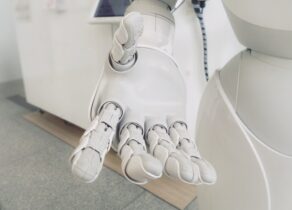Death is a certainty that all living beings must face, but what if we could beat it? The advances in biotechnology and artificial intelligence, or AI, have raised the question of whether death can be conquered.
This article explores the potential of biotech and AI to achieve immortality, farfetched as it seems, and the pros and cons associated with this idea.
Advancements in Biotech
Biotechnology is a rapidly evolving field that is focused on using biological processes, systems, and organisms to create new products, technologies, and solutions. Significant advancements in biotech have led to the development of treatments and therapies that can extend human life. One of the most promising areas of biotech research is the development of stem cell therapies.
Stem cells are undifferentiated cells that can differentiate into different types of cells and tissues in the body. Stem cell therapies involve transplanting stem cells into damaged or diseased tissues to regenerate and repair them. This can be used to treat various conditions, including spinal cord injuries, heart disease, and Parkinson’s disease.
Another area of biotech research that has the potential to extend human life is gene therapy. Gene therapy involves introducing genetic material into a patient’s cells to treat or prevent disease.
This can be used to treat genetic disorders, such as cystic fibrosis, and to prevent age-related diseases, such as Alzheimer’s disease.
Advancements in AI
AI focuses on developing machines that can perform tasks that typically require human intelligence, such as perception, learning, reasoning, and decision-making. AI can transform many industries, including healthcare, by providing new tools and solutions to improve patient outcomes and extend human life.
One of the most promising applications of AI in healthcare is precision medicine. Precision medicine involves genetic and other data to tailor medical treatments to individual patients. AI can be used to analyse vast amounts of data to identify patterns and insights that can be used to develop personalised treatment plans.
Another area of research that can potentially extend human life is the development of autonomous medical systems. Autonomous medical systems are machines that can perform medical tasks without human intervention. These systems can be used to monitor patient health, administer medications, and perform surgical procedures.
Read the full article here.






